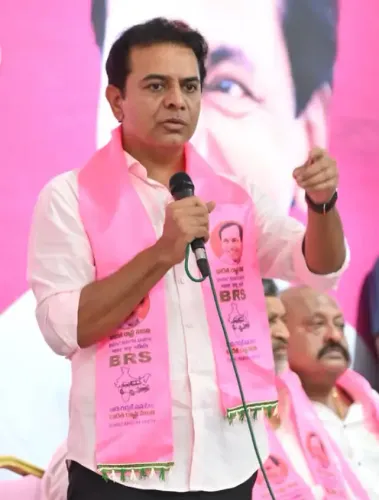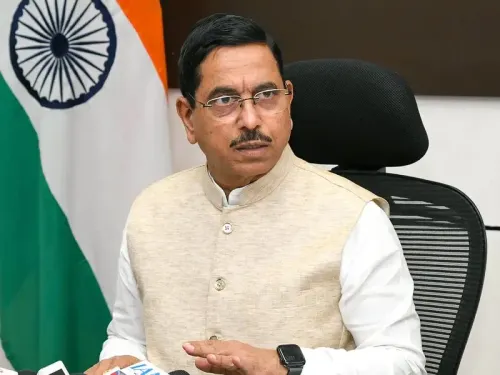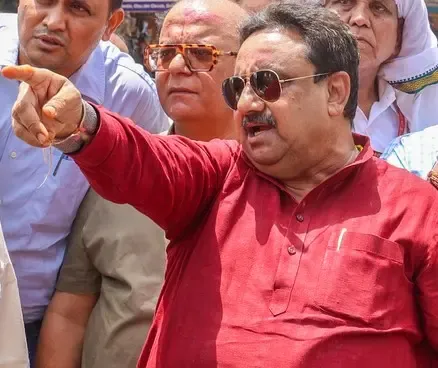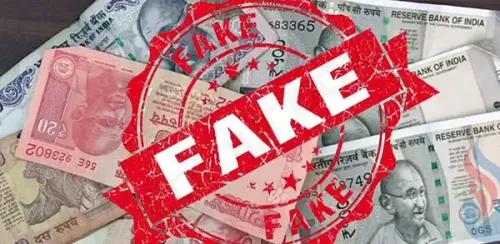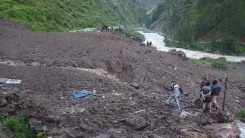Madras HC: Should Striking Sanitation Workers be Removed from Outside Ripon Building?
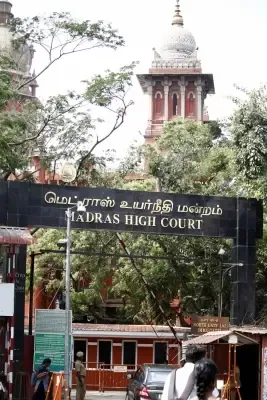
Synopsis
Key Takeaways
- Madras High Court ordered the removal of protesters from outside Ripon Building.
- Sanitation workers have been protesting against privatization since August 1.
- The court emphasized the need for designated protest zones.
- The strike has received extensive political and celebrity support.
- Concerns about job security are at the forefront of the workers' demands.
Chennai, Aug 13 (NationPress) The strike of sanitation workers in Chennai's Zones 5 and 6 took a significant turn on Wednesday when the Madras High Court ordered the removal of demonstrators from the vicinity of the historic Ripon Building. A bench led by the Chief Justice determined that protests in unauthorized areas are impermissible and instructed sanitation workers to relocate to designated protest zones.
"Though the right to protest is essential, it must not infringe upon the rights of the public," the bench noted, directing authorities to clear the area outside the Ripon Building "as soon as possible."
The court emphasized that while the workers could continue their demonstrations in permitted zones, they cannot do so in locations that disrupt civic life.
This ruling is likely to pressure both the Corporation and the striking workers to pursue a negotiated resolution.
Over 300 sanitation workers have been engaged in an unbroken sit-in since August 1, opposing the Chennai Corporation's decision to transfer cleaning responsibilities in their zones to a private firm.
The workers, participating in a 24-hour relay protest, argue that this decision jeopardizes their job security and undermines public sanitation services.
The protest has garnered support from various political factions, with leaders from AIADMK, TDP, BJP, CPI(M), and Naam Tamilar Katchi voicing their solidarity.
Numerous film actors and actresses have also shown their support by visiting the protest site. The strike has now extended into its 13th consecutive day, with the workers remaining steadfast.
However, the High Court's intervention followed a public interest litigation that claimed the protests were obstructing public access.
The sanitation workers' union contends that privatization will result in widespread job losses and deteriorating working conditions. They are demanding the cancellation of the contract with the private company, insisting that all sanitation jobs should remain within the municipal workforce.
The Greater Chennai Corporation has countered that outsourcing in the affected zones is part of an efficiency initiative aimed at enhancing waste management and cleanliness standards.
Officials assert that this shift will not lead to immediate layoffs, and that workers could potentially be reassigned to other zones.
As the High Court's order takes effect, the standoff enters a pivotal phase. It remains uncertain whether the striking workers will adhere to the relocation directive or intensify their protests.
In the meantime, civic activists caution that this deadlock could have severe implications for waste management and public health in the city's most densely populated regions.

